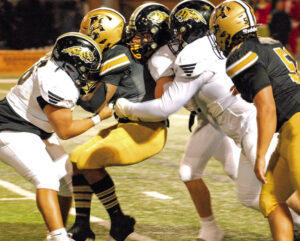There are only 2 viable options to end Russia’s war on Ukraine
After his second term, President George Washington warned the new nation to stay out of foreign entanglements. Washington knew how foreign entanglements can be damaging to a young nation. As a British officer, Washington learned of military history and its consequences — how wars can drain a country of its youth and its treasury.
This was sound advice for its time. Washington had no way to understand how advances in communication and transportation would change the world. The War of 1812, which was forced upon the U.S. by British impressment, ended before one of its key events, the Battle of New Orleans, happened.
The peace treaty was signed in late December 1814 in Ghent while the battle took place in January 1815. The communications of the time were slow. Papers had to be carried by ship across the Atlantic. The treaty did not arrive in the U.S. until February 1815, a month after the battle.
This was the world of Washington and his peers. Thirteen states barely held together for a common defense and a common market.
There were roughly 50 years of peace for the nation to coalesce when the Civil War broke out. And, some 30 years later, the Spanish American War gave the public the idea of thinking as one nation rather than a collection of independent states.
World Wars I and II brought the nation to the level of a major international power. The advancement of transportation and communication had shrunk the world. It was a very different place than it was in Washington’s time. Global trade had come of age; thus, America’s vital interests had expanded to include the world.
With America as the lone superpower in the world, what is our responsibility on the world stage?
The war in Ukraine rages on. While it is clear Russia is the aggressor in the war, what is America’s responsibility? We have been providing material, logistics and training support to the order of $175 billion. But there has been no U.S. backed troops on the ground. No U.S. lives have been shed during this assistance period.
Where do we go from here?
Ukraine has fought the tough fight with U.S. and European logistical support. Can it force a treaty with Russia with only logistical support? It does not appear that it is possible.
What are the alternatives?
- Stop providing support and let Europe provide what support it deems necessary.
Some things to consider: If European countries send troops to Ukraine, it will spread into a larger war and NATO will have to respond. If Europe decides not to support the Ukraine, Russia will win the war.
- Join with Europe in an invasion to drive Russia back and force a treaty.
Some things to consider: Russia may view this as an existential threat and World War III will erupt.
- Form a treaty with Ukraine and the U.S. — the U.S. only with no European forces — send in troops to force Russia to a treaty.
Some things to consider: To end the war without a full-scale war on Russia, Ukraine will need to make some concessions, such as Zelensky stepping down and a new government being elected with U.S. and Russian supervision.
- Assassinate the Russian leader.
Well, look at history. That is how World War I started.
Valdimer Putin will not sign a negotiated peace without extreme concessions from Ukraine that Ukraine will not accept. There are only two options — either we let Russia win, or we send American troops to force Russia to withdraw and sign a treaty.









